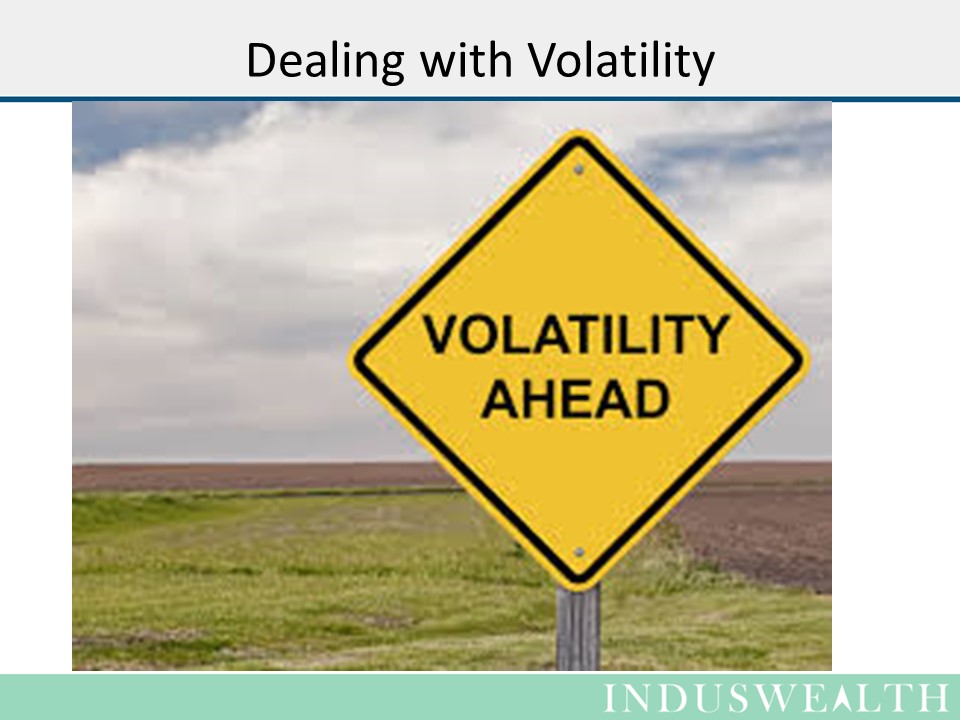As we experience significant volatility in the market with sharp corrections we thought we should look at one of key questions most investors are asking themselves.
How to evaluate holdings when there is a sharp fall in the market?
To start with let’s look at why a stock should be purchased in the first place.
We should buy a stock when we find that this is a good business that we can hold on for a long time and it is selling at a reasonable price.
- By “good business” we mean
- The company is operating in an industry where it is possible for well-run firms to make money.
- This firm has been reporting good profits over a period of time. (It is generating a good return on capital invested, i.e., it has to be “much” higher than the bank rate of return)
- The company is increasing its profits by growing its business
- The management is sound and proactive. (Run by decent people who are looking to build their business by doing the right things)
- The company has a financial and operating structure where bulk of the profits can be attributed to the shareholders
- By “reasonable price” we mean
- The price at which the stock is available is less than the value of the profits it is likely to generate in the future (based on its past record and understanding of its business).
- This is to a certain extent subjective and involves making a guess about the future – but that is the basic nature of investing.
- The price at which the stock is available is less than the value of the profits it is likely to generate in the future (based on its past record and understanding of its business).
A few things we should evaluate when the price of a stock is significantly down due to a sharp correction in the market
- Is there a fundamental change in the “good business” parameters that led to selection of the stock?
- If there is a change for the worse in the “good business” parameters
- We should look to see if this is a permanent change of is it a temporary setback that the company can recover in the short run (4 to 6 quarters)
- If this is a permanent change it may make sense to consider selling
- If the set back is temporary one should wait, even the best make mistakes and it is only reasonable to be patient with a good stock
- If there is no change in the good business parameters one should see if the purchase price was reasonable (if we had over paid in the first place)
- Even a great business purchased at an unreasonable (high) price will tend to lose money.
- If the valuation was high then one should consider exiting the business.
- If the price paid was reasonable one should continue to hold.
- Even a great business purchased at an unreasonable (high) price will tend to lose money.
- We should look to see if this is a permanent change of is it a temporary setback that the company can recover in the short run (4 to 6 quarters)
- If there is a change for the worse in the “good business” parameters
Our thoughts on the current market
- There is a certain amount of concern and volatility in the market and it could continue for some more time
- The global slowdown is not going to be democratic and across the board, some sectors are still going to do better than others.
- Even if there is a global slowdown, India has a lot of infrastructure to build to just satisfy domestic demand.
- Fundamentals of Indian business have not changed significantly, we believe that in the long run growth India will outpace the global growth
- Indian economy will continue to do well and this will be reflected in the markets. We will grow from a 2.3 trillion economy in 2015 to 10 trillion economy by 2025 to 2030 – this is 5 times in 10 to 15 years. (China grew from 1.5 trillion economy in 2000 to 11 trillion economy in 2015, this is more than 8 times).
- These corrections will provide a few investment opportunities for long term investors
Our advice
- This is the time to take a long term view and not be overly concerned about the short term volatility and/or losses.
- People who cannot financially or psychologically deal with volatility of the stock markets in the short run should try and avoid investing in equities.
- Long term investors should persist with their investment plans – it may be good to consider temporal diversification (investing regularly over a period of time) is to effectively deal with fluctuations in the market.
Happy investing….
